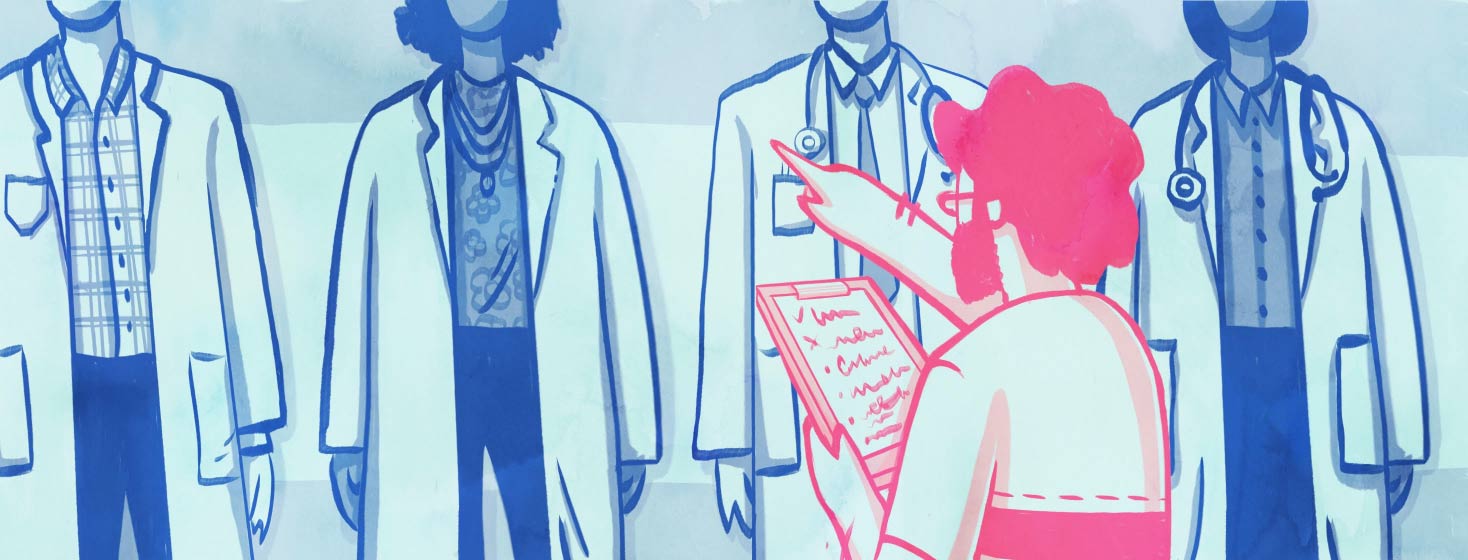Choosing A Doctor
Finding a partnership can be difficult. A business partner, an exercise partner, a romantic partner; all have similar qualities that make the partnership constructive. To me, choosing a doctor is like finding a partner for your health. Just like other partnerships, there are signals that might be affirming of the connection or a warning sign to keep on with the search. Unlike other partnerships, there are some restrictions that can make it difficult to find the right fit. Hopefully, within a few minutes, you’ll have some new insight about your own patient/doctor relationship and how it can be improved.
What makes a good partnership?
A key to strong partnerships is equal communication. If one person in the partnership holds all the responsibility or makes all the decisions, then the dynamic becomes less of partnership and more of a student/teacher power dynamic. So, here are some things to consider in a meeting with your doctor:
- Conduct: Are both parties in the partnership showing up on time? Are they coming prepared? Are they doing what is expected of them in this partnership?
- Communication: Are both parties given a chance to voice their perspective? Are both parties hearing and understanding one another? What is the tone of the conversation?
- Compromise: Are both parties willing to accommodate the other’s perspective? Are both parties working towards a mutually-desired goal?
These are questions that can help to assess the quality of most partnerships but are primarily useful for a doctor-patient partnership. During a first meeting, this can help you assess the interaction with the doctor.
The first meeting and 'red flags'
During your first appointment with a new doctor, they are assessing you and it’s only fair that you do the same with them. As the patient, you have the power to determine if the doctor is right for you and the power to not go back if they are not. Just like on a first date, it’s good to keep a keen eye for 'red flags,' which is a signal that they might not be the best option. Here are some ‘red flags’ that I have experienced with doctors:
- Not washing hands when coming into the room or touching me
- Interrupting
- Making assumptions about my health
- Not actively listening
- Being in a hurry to move on
- Not respecting my experience and perspective
These are a few things which I have experienced in a doctor’s office, which made me decide against going back for more treatment. I think it’s important that we as patients have this right, to decide about our health care. A right which I fear may be waning.
Influences of our ability to choose
It’s not difficult to argue that access to healthcare is becoming an issue. Medication costs are consistently on the rise, while people fall through the systemic cracks, leaving them without adequate coverage.1
As conglomerations buy up private practices, the patient's ability to choose a doctor and who they might prefer becomes limited by their insurance. Aside from bureaucratic barriers, the number of doctors in a person's accessible area might be slim. So, having doctors to choose from might be a privilege that not all people have.1
Where to go from here?
Perhaps ask yourself, 'is my doctor a constructive partner in my health?' If the answer is 'yes', then that's awesome and you should be excited to have found such a support. If the answer is 'no', then maybe some perusing into new doctors is worth the time. Doctors are one of our greatest supports as patients, so we should be able to choose who our doctor is and choose someone who resonates with us as patients. Hopefully, now you will have some new perspectives that can help you find a partner for your health.
Read on to "Feeling Strong As An Asthma Patient."

Join the conversation